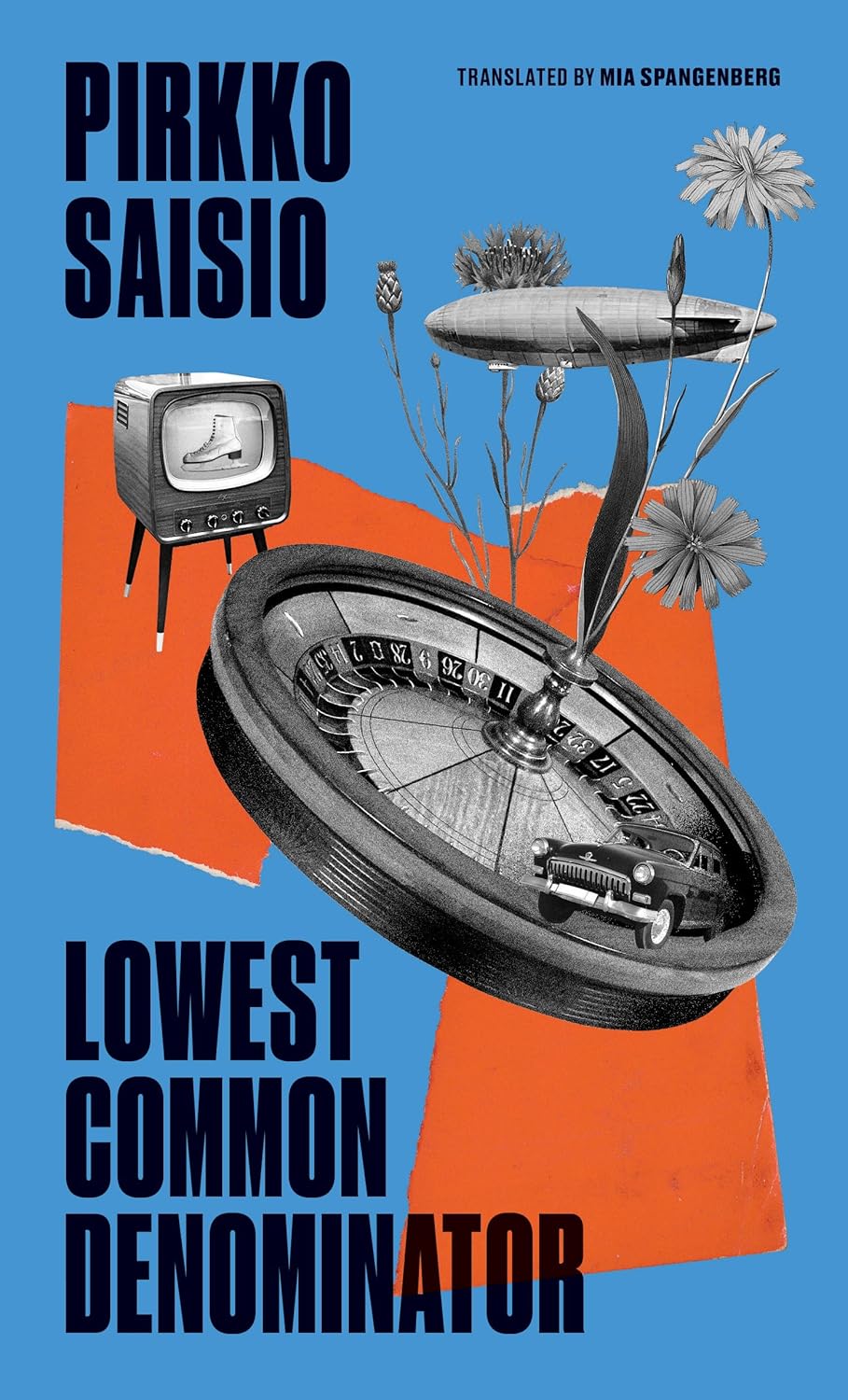Review of Lowest Common Denominator by Pirkko Saisio, translated by Mia Spangenberg

Lowest Common Denominator
Pirkko Saisio, translated by Mia Spangenberg
Two Lines Press, 2024, 312 pages
$23.00
Reviewed by Jules Gellert
Lowest Common Denominator is a fictionalized memoir from the well-known Finnish lesbian author and actor, Pirkko Saisio. As part of her Helsinki trilogy, Saisio tells the story of her early childhood as the only child of communist parents in the years following World War II, as well as the Winter and Continuation Wars between Finland and the Soviet Union. Through the eyes of the young narrator, readers see her confusion in trying to understand the adults around her and concepts such as religion, gender, and class. The story also jumps to the narrator in the present day, which follows her as she copes with her father’s death. This book functions like a stream of memories, bouncing between the past and present and different views of the self. Saisio explores her self-image through her character in the novel, playing with the first- and third-person points of view, almost as a voyeur to her own thoughts and memories.
Translated by Mia Spangenberg, Lowest Common Denominator is written beautifully and fluidly. Though the pace is slow and sometimes contains anecdotes that I did not find particularly useful or interesting, the book overall uniquely captures the narrator’s childhood and its connections to her adult life. The original title of the book, Pienin yhteinen jaettava, literally translated as “smallest common factor,” might better represent the young narrator’s experiences as a foundation for her adult self, depicted as a more conventional—though lesbian—woman and mother. Saisio discusses gender and sexuality through her childhood gaze, from her learning about Jesus, who “isn’t a man or a woman” (p. 200), to her devotion to Miss Lunova, an announcer at the amusement park. Despite the lack of a more explicit exploration and focus on gender and sexuality, for readers interested in a very personal book about childhood amid political crises and a slowly changing culture—especially regarding the status of women—it is definitely worth the read. Though the book is approachable, I recommend doing a quick read on the political climate of this time period in Finland to better understand the driving forces behind the story.
Jules Gellert is currently a master’s student in Helsinki and a Sinister Wisdom intern for the summer of 2025. She spends her time reading, studying, and making art.
"Empowerment comes from ideas."
― Charlene Carruthers
"Your silence will not protect you."
— Tourmaline
"Gender is the poetry each of us makes out of the language we are taught."
— Leila Raven


